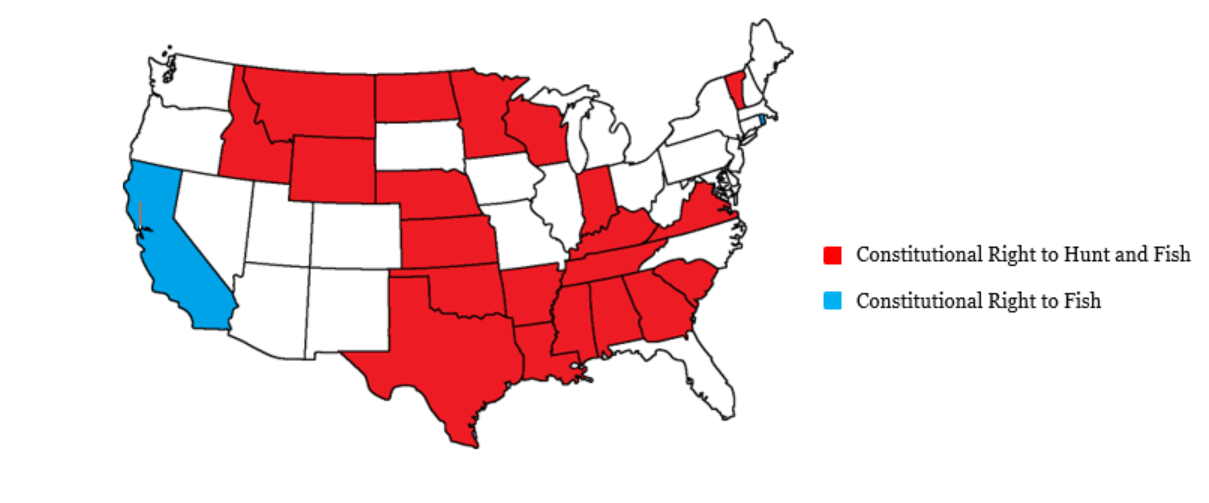Sportsmen and women in many states are seeing increased encroachments on their hunting rights and are turning to state constitutions to ensure their outdoor heritage continues for future generations. Increased urbanization, decreased habitat and more restrictions on hunting are common factors in the pursuit to proclaim the right to hunt and fish in a state's constitution. Closure of lands that have been historically open to sportsmen and women, increased development of farmland and forests and pressure from non-hunters have decreased available land and opportunities for sportsmen and women to harvest game and fish.
Well-organized anti-hunting groups are attacking America’s outdoor heritage in state legislatures. Limitations on methods, seasons and bag limits for certain game species have provoked many hunter advocacy groups, including Safari Club International, to increase lobbying to guarantee hunting and fishing as a right.
Current Constitutional Right to Hunt and Fish States
Twenty-one state constitutions guarantee the right to hunt and fish, with 17 of those provisions approved by the voters. While Vermont's language dates back to 1777, the rest of these constitutional provisions—Alabama, Arkansas, Georgia, Idaho, Indiana, Kansas, Kentucky, Louisiana, Mississippi, Minnesota, Montana, Nebraska, North Dakota, Oklahoma, South Carolina, Tennessee, Texas, Virginia, Wisconsin and Wyoming—have passed since 1996.
California and Rhode Island have language in their respective constitutions guaranteeing the right to fish, but not to hunt. Advocates also consider Alaska’s constitutional language — “Wherever occurring in their natural state, fish, wildlife, and waters are reserved to the people for common use”—as meeting the test because of its strong caselaw history.

